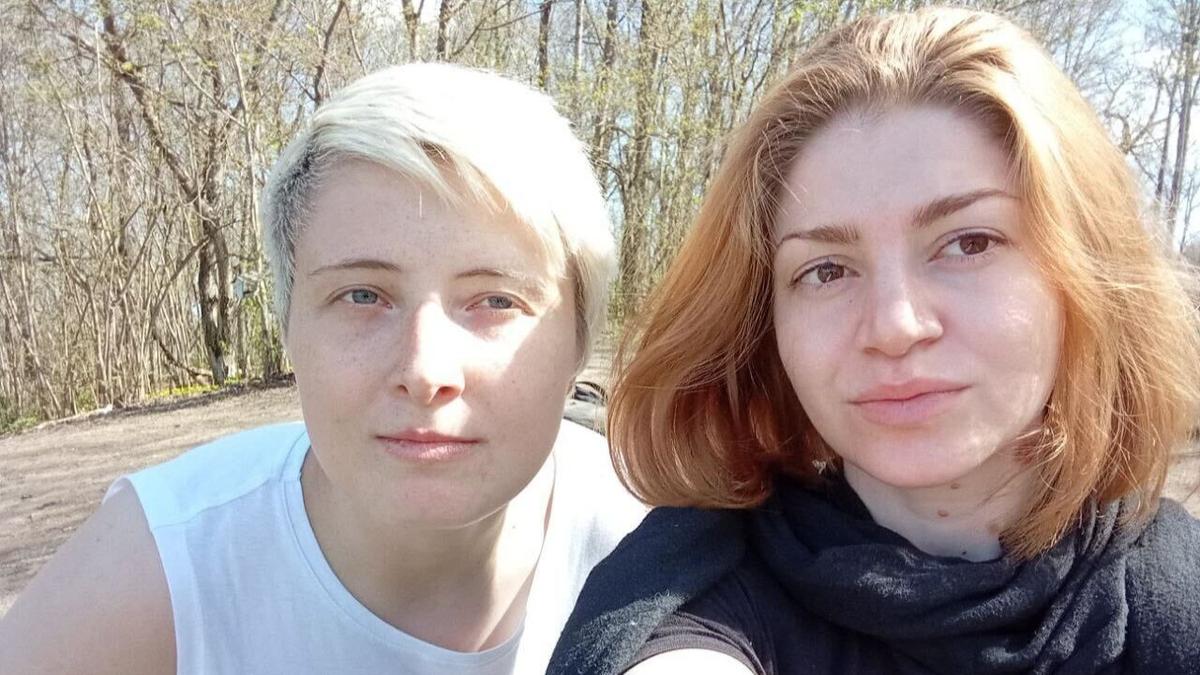A year and a half after police officers abducted Seda Suleymanova from her apartment in St. Petersburg and forcibly returned her to her family in Chechnya where she is believed to have been murdered in a so-called “honour killing”, her friend Lena Patyaeva remains determined to raise awareness of her case and to get some answers.
While Suleymanova’s Russian boyfriend, who may ultimately have been the main reason for her kidnapping and murder, has decided to move on and put their relationship behind him, Patyaeva has been relentlessly searching for her and attempting to raise awareness of her plight since her disappearance.
On 29 January, Patyaeva was arrested for holding a one-woman picket demanding to know where Seda was on a St. Petersburg bridge named in honour of former Chechen president Akhmat Kadyrov, who is also the father to the republic’s current head, Ramzan Kadyrov. The placard she carried read: “Where’s Seda? Chechen investigators have been unable to find her either dead or alive for 10 months.” After spending 48 hours in police custody, Patyaeva was ordered to complete 20 hours of community service for her unauthorised protest.
Events quickly spiralled out of control once a relative managed to track Suleymanova down.
Over the past two years, Patyaeva has been tireless in her quest for answers, travelling to Chechnya herself, as well as staging regular pickets and organising flash mobs to raise awareness of her cause in the hope that the Chechen authorities will bow to public opinion and find out what happened to Suleymanova once and for all.
The two women met when Patyaeva went to visit a friend at a shelter run by North Caucasus SOS (NC SOS), a human rights organisation that helps people from the region facing persecution. As Suleymanova needed a roof over her head and Patyaeva needed a flatmate, they quickly moved in together.
However, their cohabitation was short-lived, as events quickly spiralled out of control once a relative managed to track Suleymanova down, approaching her in the coffee shop where she worked and asking her where she lived, who helped her flee Chechnya and urging her to return home. Suleymanova escaped through the back door and sought immediate help from NC SOS.
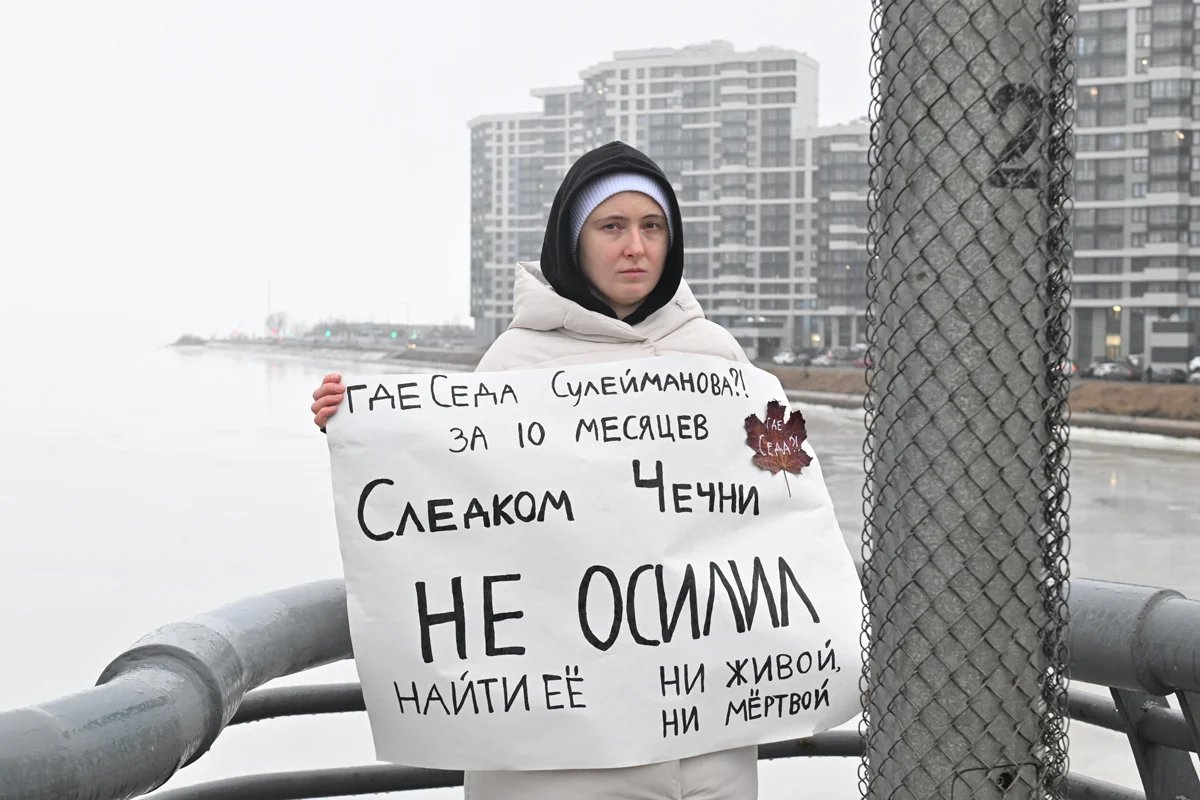
Lena Patayeva mounts a solo protest in St. Petersburg holding a sign that says “Where’s Seda? Chechen investigators have been unable to find her either dead or alive for 10 months” on 29 January 2025. Photo: Mediazona
Concerned for her safety, the human rights activists she turned to for help only allowed Suleymanova to contact Patyaeva some time later. “I was in shock, of course. I didn’t expect that at all,” she recalls. She then began asking Suleymanova about her family, and was told for the first time that she could be killed.
“I felt not so much disbelief as surprise: how could you kill your own daughter or sister?” she says.
Suleymanova told Patyaeva how she was the youngest of five siblings, and that all three of her sisters had been married by the age of 18, whereas she was considered to be an old maid, being 25 when she ran away from Chechnya.
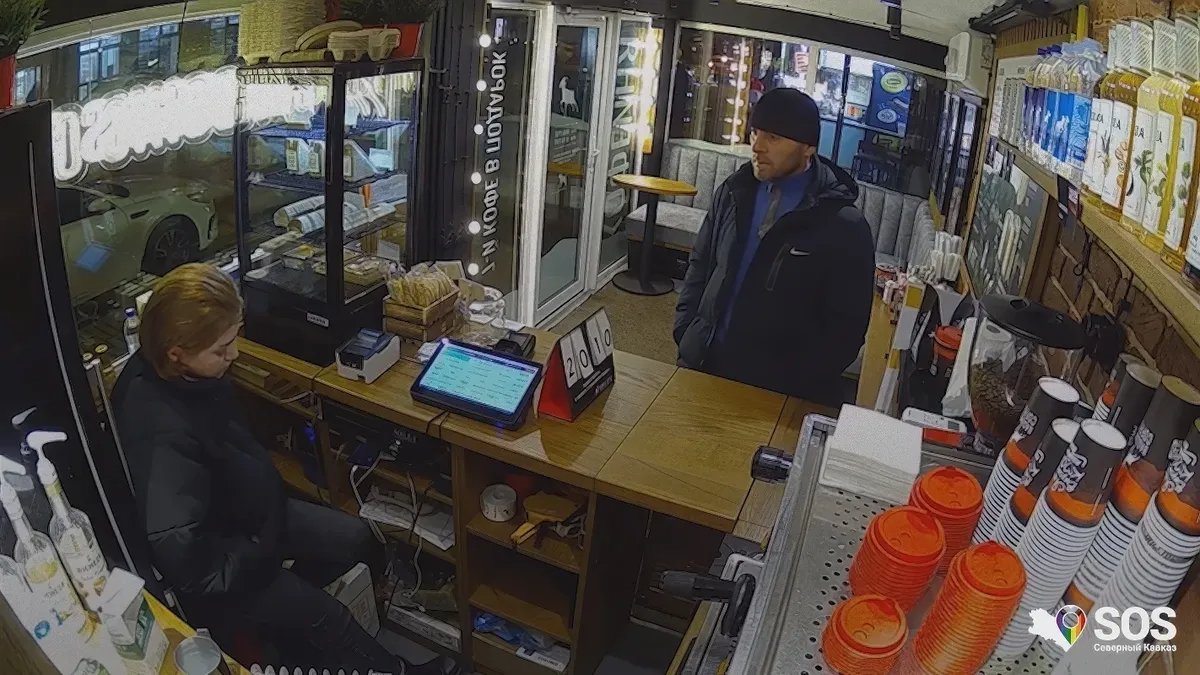
Akhmed Bataev, Suleymanova’s cousin, and Suleymanova in a St. Petersburg café, February 2023, photo: NC SOS / Telegram
Patyaeva says that at the time some of her stories made little sense. For instance, that her brother Mikail loved her more than he did his other sisters, but that she also thought he was capable of killing her. “For someone on the outside looking in, this sounded like total nonsense, but this was the daily reality of Seda’s life.”
By early 2023, it was time for Suleymanova to decide whether to move out of the NC SOS shelter and live independently, or remain there while she prepared to emigrate with their support. She picked the former, due to her reluctance to begin rebuilding her life from scratch abroad, Patyaeva recalls, adding that it was around this time that she met her boyfriend Stas.
“They moved in together, and Seda told me that she felt happy and at ease with him. She had a sense of security, even if it turned out to be a false one. Stas used to say to her: ‘I’ll protect you.’ She believed him. She relaxed,” Patyaeva says.
Shortly before her abduction, Suleymanova called her mother to tell her that she was marrying an ethnic Russian, and though she had been very careful not to tell her his name, her relatives still managed to track him down, probably through contacts they had in the police.
St. Petersburg police and plain-clothes security officers from Chechnya apprehended Stas on 23 August 2023 at the entrance to the building where he and Suleymanova lived. They demanded he open the door to their apartment.
Stas went to the door with them, knocked and stood by the peephole so that Suleymanova would only see him. After opening the door, the police officers detained her, took her to the police station and accused her of stealing jewellery from her own mother. She was taken to the Chechen capital Grozny that same day.
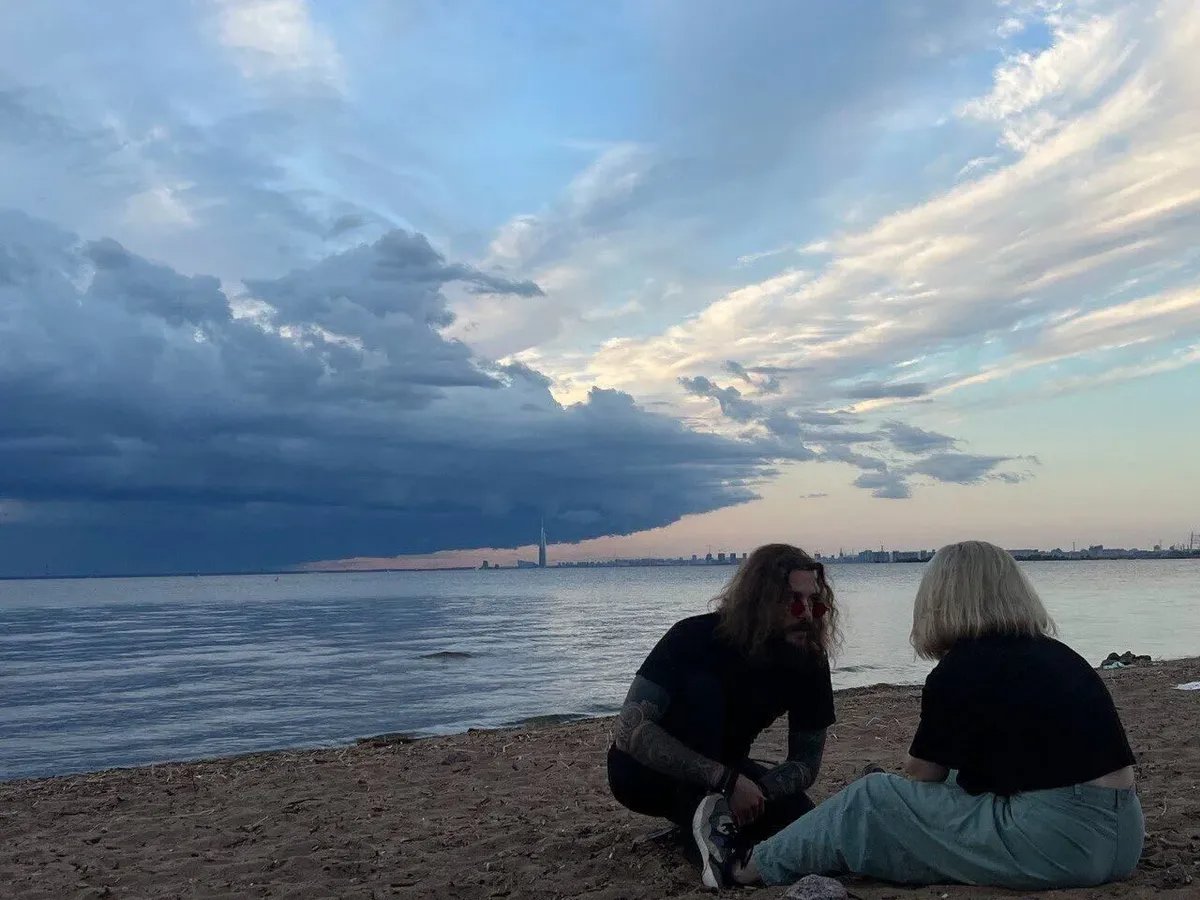
Seda Suleymanova with her boyfriend Stas. Photo courtesy of Lena Patyaeva
Patyaeva learned of her friend’s abduction the following day, as Stas had had his telephone confiscated the previous day by the police, and so the various human rights activists Suleymanova was in touch with were also unaware of her disappearance.
Patyaeva says she still finds it impossible to forgive Stas for helping the police gain entry to their apartment. “I just can’t explain or justify what he did. Objectively, I get it. He was weak, he was frightened, he wasn’t expecting it. But on an emotional level, I can’t forgive him for standing in front of that peephole.”
Perhaps the result would have been the same even if Stas had resisted, she admits, as the police might simply have broken down the door. But she thinks that, in his place, she would have at least tried to scream, get away, or try to signal to Suleymanova that something was awry.
Suleymanova’s friends believed that lawyers and human rights activists would be able to help her.
For the first couple of days, Suleymanova’s friends believed that lawyers and human rights activists would be able to help her. But Patyaeva became truly scared on 29 August, six days after the abduction, when Chechnya’s Commissioner for Human Rights, Mansur Soltaev, posted a photo of himself with Suleymanova saying that she was doing well and that she faced no rights violations or harassment.
“Even learning she had been kidnapped wasn’t as frightening as seeing this photo. That was when I realised this was no longer about Seda and her family. The Chechen government had got involved, and Kadyrov’s people are terrible,” she recalls.
The woman in the photo Soltaev posted could have been “a completely different person,” she says. “I barely recognised her, and had to peer at it for a long time to see if it was her. She looked so unlike herself. The way she carried herself, her clothes, her face. It was all different.”
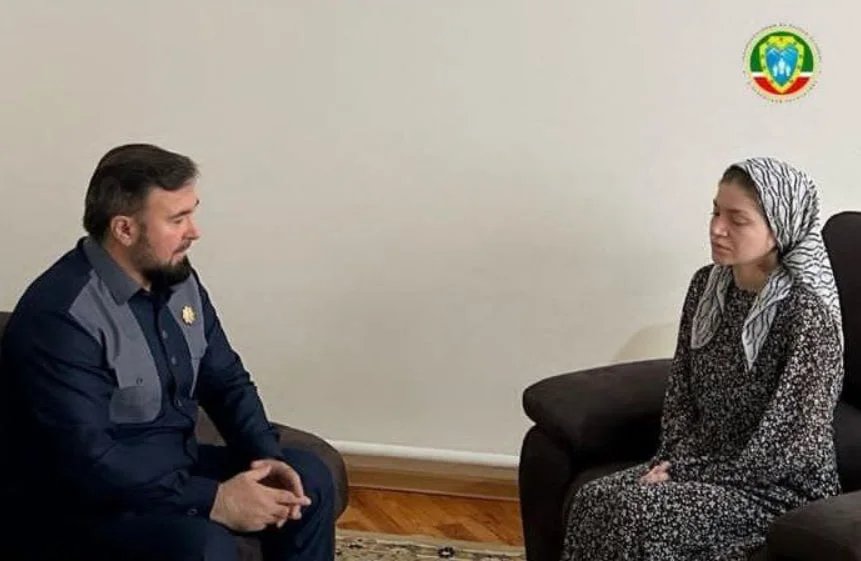
A screenshot of Suleymanova speaking to Chechen human rights commissioner Mansur Soltaev after her enforced return home, 29 August 2023.
Almost immediately after Suleymanova’s abduction, human rights activists had confirmed that she was in a relationship with an ethnic Russian, and Stas himself gave an interview saying that he had converted to Islam and wanted to marry her. However, that only aggravated the situation, because the extra-marital relationship, which her family already considered shameful, was now public knowledge.
“In view of Chechen cultural sensibilities, a Russian man was like a red rag to a bull for the family,” Patyaeva agrees. “But the human rights activists sincerely hoped that showing the beautiful love story between Seda and Stas would demonstrate that she was well protected and help her.” They were wrong.
By late autumn, Patyaeva realised that the search for Seda had stalled, and so she began to speak to the media about what had happened, before going on to stage her first picket in January 2024 to mark 150 days since her abduction.
Since then, Patyaeva has staged multiple solo pickets, despite the extreme anxiety it causes her. “I’ve been paranoid, afraid to leave the house, worrying that I’d be kidnapped or killed. But I haven’t received any threats. I’ve had no reaction from Seda’s relatives either.”
Last February NC SOS announced that it believed that Suleymanova had been killed. “It was a total nightmare. At first I didn’t believe it, then I did, and then I started thinking it couldn’t be true again,” Patyaeva recalls.
According to Patyaeva, November 2023 is most likely to have been when Suleymanova’s murder occurred, as she had written a statement confirming that she had returned to Chechnya of her own free will. “There are a couple of lines written and signed by her. The signature and handwriting both look genuine,” Patyaeva says.
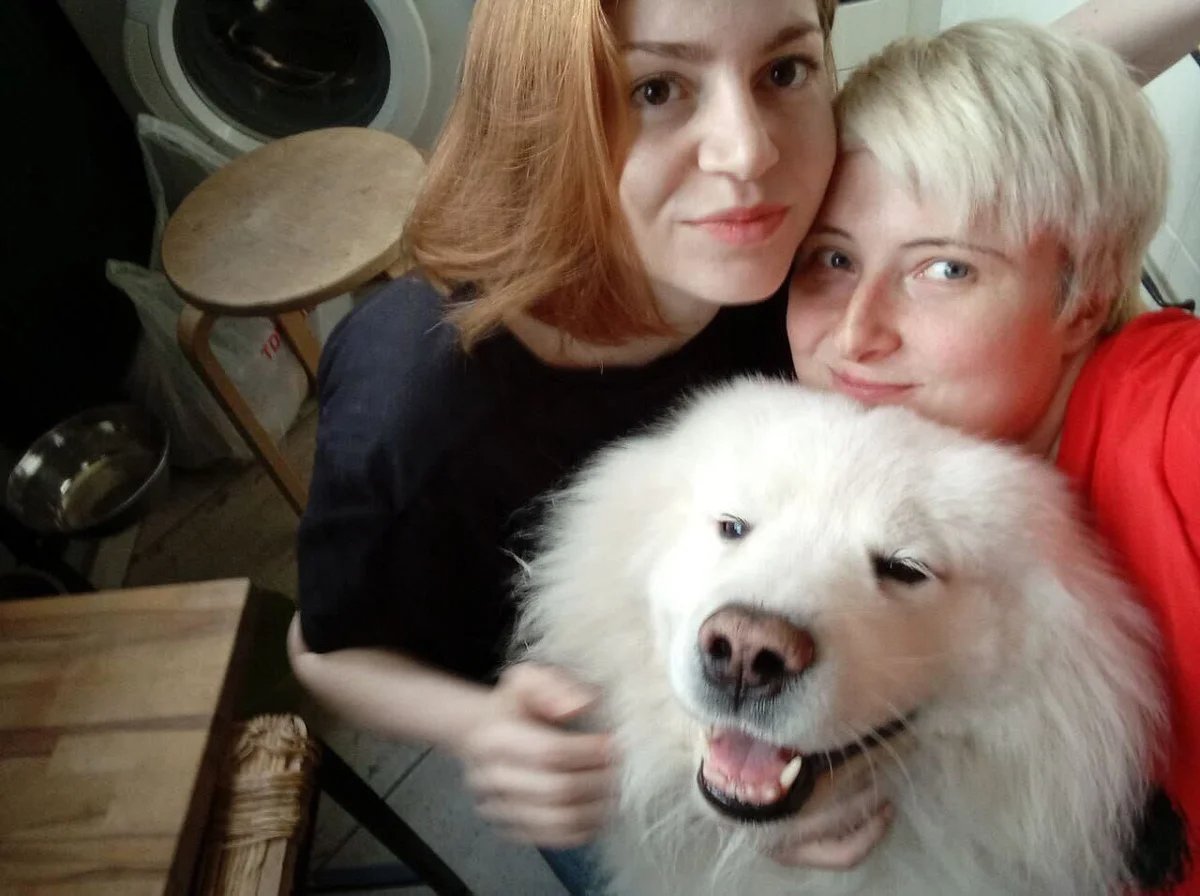
Seda Suleymanova and Lena Patyaeva. Photo courtesy of Lena Patyaeva
Since then, there have never been any signs of Suleymanova being alive. When one journalist managed to reach one of Seda’s uncles by phone in early February 2024 and asked him about her whereabouts and if she was dead, his reply was: “That whore? What do you mean, is she dead? She’s right here!”
However, when asked to put Suleymanova on the line or to take a photo or video of her, he refused. Human rights activists who managed to contact one of Suleymanova’s older sisters, who lives in Sweden with her husband, asked her if she knew anything of her sister’s fate. She replied chillingly that both she and her husband fully supported what she referred to as her family’s “actions”.
In April, Patyaeva travelled to Chechnya to make an official statement to police investigators about Suleymanova’s case, despite the very real dangers inherent in entering the republic having been publicly critical of the violent and vengeful Kadyrov clan. “That was on my own initiative,” she says. “I could have testified in St. Petersburg, but I wanted to go to Chechnya. I was looking for any excuse to visit where she lived and where she was killed. It was my way of saying goodbye to her.”
Nevertheless, Patyaeva says she still retains a glimmer of hope that Suleymanova could be alive, though she understands there is little realistic chance she is. When asked at what point she will accept that there’s nothing more she can do for her, she replies, “Either when they show that she is still alive, or when all the criminals are punished according to the law and justice prevails. I need to know what happened. I need to know how she was killed and who killed her.”
Join us in rebuilding Novaya Gazeta Europe
The Russian government has banned independent media. We were forced to leave our country in order to keep doing our job, telling our readers about what is going on Russia, Ukraine and Europe.
We will continue fighting against warfare and dictatorship. We believe that freedom of speech is the most efficient antidote against tyranny. Support us financially to help us fight for peace and freedom.
By clicking the Support button, you agree to the processing of your personal data.
To cancel a regular donation, please write to [email protected]
